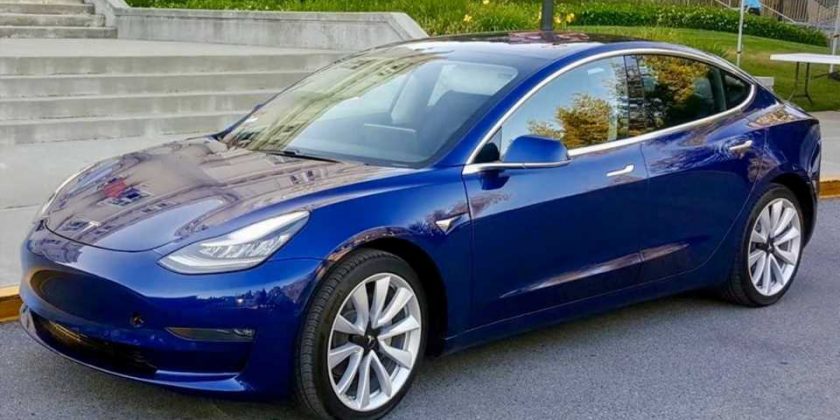Electric car sales keep their strong momentum in Italy.
As the nation’s car market recovers from the coronavirus collapse of previous months, overall volumes are returning to healthy levels amidst strong signs of a new reality in the industry. June figures show consolidating trends of change that will likely lead to electric surprises in the second half of the year.
Editor’s Note: This article was originally published on opportunity:energy.
Unrae monthly data confirms a shift in demand that started before the health emergency, and that now is made all the more noticeable as car sales rebound at different levels from the lows of Spring lockdown. Italy’s market as a whole is still down more than 23% from the same month a year ago, with about 133,000 units, a good performance nonetheless given the ongoing crisis. It is conventional ICE vehicles however that are taking the hit: for electric cars, as we will see, it’s another story.
Standard diesel and petrol sales were down 35% and 29% respectively year on year, a heavy burden for legacy carmakers struggling to reset in the year of the pandemic. Conventional plugless hybrids, boosted by a growing choice of new models, are absorbing part of the gap as they physically replace older ICE offerings no longer for sale (accounting for 12% of this month’s volumes).
Full electric cars sold near top levels, with 2228 units placed (1.7% market share), up 53% from the 1454 cars sold in June 2019, which was last year’s monthly record in a much healthier market for the industry. This result marks the second-best month to date following record February sales of 2530 BEVs, achieved before coronavirus hit the market. Plug-in hybrids also had a banner month, with 1645 units sold (up a whole 315% from less than 400 units sold a year ago), giving PHEVs a 1.2% market share. Plug-in cars thus accounted for 2.9% of the Italian market, nearly triple the market share just twelve months ago and consolidating May sales results for the country.
As the market reaches the end of the second quarter, the Top 10 BEV chart is back to full volumes, with well-known names taking the stage and one notable new entry.
Tesla Model 3 steals the monthly crown from the Renault Zoe, as Elon Musk’s quarter-end push rewards the company with 317 registrations, just enough to overtake the French compact EV, second at 314 units. Smart ForTwo closes the podium with 260 cars. Volkswagen’s e-up! follows closely at 235 units in fourth place (over 28% of the baby VW’s sales are e-versions in June), but it’s the Peugeot e-2008 that makes a surprise entry directly in fifth position, with 166 registrations, right above its sibling Peugeot e-208 at 158 units.
The e-2008 is the second declination of PSA Group’s new compact EV platform in SUV format, after the previous launch of the DS 3 Crossback E-Tense, and to be followed by the new Opel Mokka-e in coming months, a great sign of increasing competition in one of Europe’s hottest car segments.
Further down the Top 10, Opel Corsa-e scores seventh place with 136 registrations, its highest result to date and the last of three PSA models marking their presence in the June chart, along with its Peugeot cousins. It is clear that the French group’s diversification of its first EV platform through multiple brands and segments is quickly paying off, competitors are warned.
Nissan Leaf (92 units), Hyundai Kona EV (73) and Smart ForFour (57) close the chart with familiar names, but less flattering numbers. Are Nissan and Hyundai letting newcomers eat their lunch? A number of new models are sure to challenge staple entries in the list in the second half of the year and push overall sales upwards amid growing competition, a great outlook for Italy’s EV market – as we’ll see in a separate article.
While the coronavirus crisis lingers on the broader economy and conventional car sales, the opposite is happening to electric mobility, and with increasing focus. As new EV models and recovery policies are about to hit the Italian market, the best is yet to come.
Source: Read Full Article



